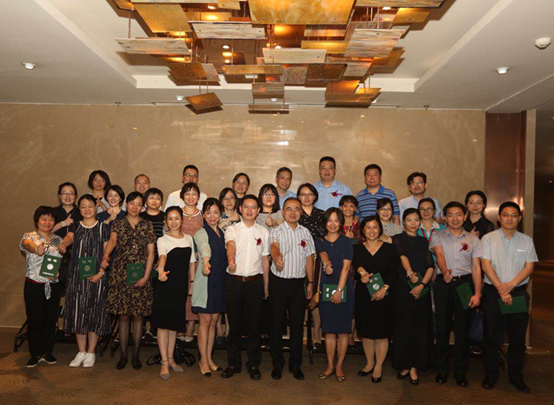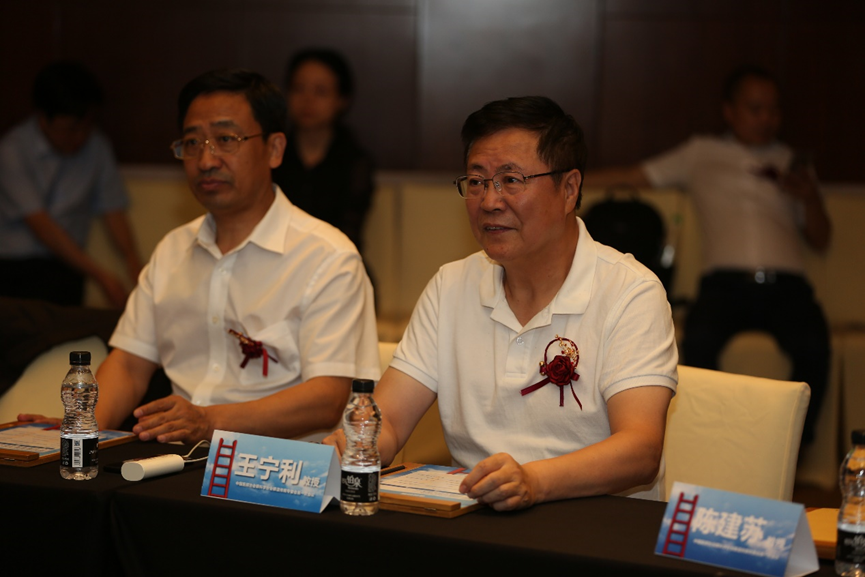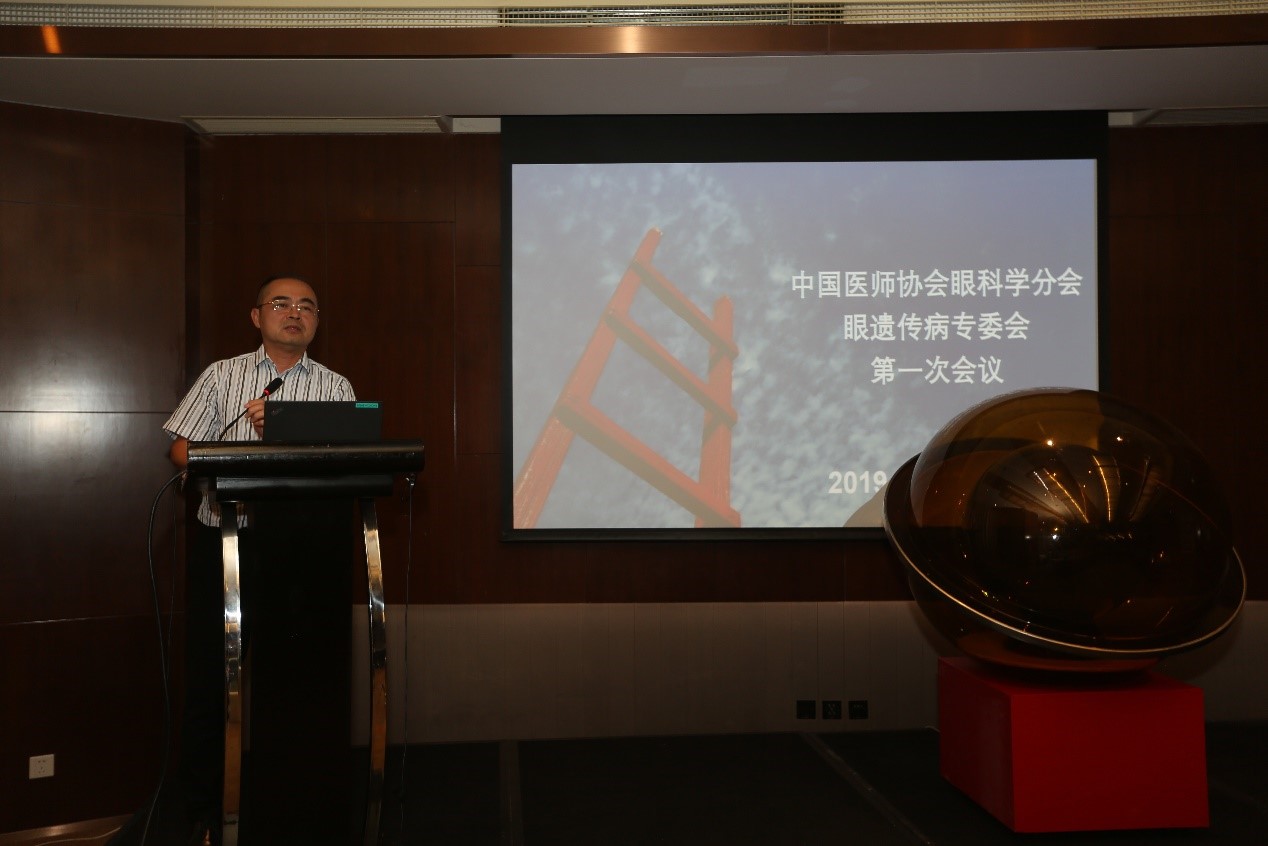The 13th Annual Congress of Ophthalmologists Sub-Association, CMDA, was held in Zhengzhou, Henan on June 13-16, 2019. In accordance with the concepts of opening-up, comprehension and forward-looking, the Hereditary Eye Diseases Committee was officially established under the joint efforts of Professor Tang Shibo and other experts and summoned the first committee meeting. This committee was chaired by Professor Tang Shibo, (Vice Chairman of the Ophthalmologists Sub-Association, CMDA and the Dean of AIER School of Ophthalmology, CSU), and Professor Chen Jiansu, (Ph.D. Tutor of AIER School of Ophthalmology and the Deputy Director of AIER Eye Institute), and joined by other 30 famous experts such as Professor Ju Ruifang, Professor Jin Zibing, and Professor Li Yang.

First Congress of Hereditary Eye Diseases Committee, Ophthalmologists Sub-Association, CMDA is held successfully.
At the first committee meeting, Prof. Tang Shibo demonstrated a series of achievement in X-Linked retinoschisis research by their teams. They used a mouse model that combined induced Pluripotent Stem cell (iPSCs), which was established in vitro from urine cells of patients, to explore disease pathogenesis and new treatment strategies.
Prof. Chen Jiansu shared a study on the application of induced pluripotent stem cells in hereditary eye diseases-retinitis pigmentosa (RP), which uses somatic cells (skin fibroblasts, urine cells, blood mononuclear cells) to reprogram technique and establish a disease model in vitro and then simulates the development of the lesion in vitro when it differentiates into a retinal organ to explore the mechanism of the pathogenesis. Based on the analysis of pathogenesis, through individualized evaluation of existing drugs, discovering new therapy target and screening new drugs to provide a new research method and technology platform for tUSH2A mutant RP disease research.
Jing Yutong, Master student of AIER School of Ophthalmology, CSU, who is also a member of Prof. Tang Shibo and Prof. Chen Jiansu's research team, delivered an academic report on "Building Non-integrated Human Induced Pluripotent Stem cells from Families with Chinese Plaque Corneal Malnutrition" at this conference. Besides, some research findings that related to hereditary eye diseases, were also presented as posters by PhD students Mao Shengru and Lu Da.
All these research findings above are expected to achieve an early pathological diagnosis, pathological mechanism determination and early targeted intervention of patients’ family members and reduce the risk of hereditary eye diseases. It lays a good foundation for the next step of evaluating and screening individualized drugs for mutant hereditary eye diseases and has great significance for treating hereditary eye diseases through genetic editing and stem cell treatment in the future.
"The subject we are studying now is to achieve accurate targeting to early molecular cell biology lesions in patients’ family members, and to lay a foundation for early targeted therapy and the prevention of hereditary eye diseases that are individualized and refractory,” Prof. Chen Jiansu said.
In this conference, other experts also shared their research propositions and progress in hereditary eye diseases. They had a heated discussion about how to make breakthrough for the hereditary eye diseases research and a unified developing objective for the Committee was agreed upon. Prof. Tang Shibo, as the chairman of the Committee, is full of expectation to the research achievements and future development of the Committee, and he delivered his hope that each member of the group can fully use their advantages with the principle of "Bring In" and "Going Out", participate in the work and the annual congress of the Ophthalmologists Sub-Association actively to expand academic cooperation, striving to promote the development of research and treatment of hereditary eye diseases.

Prof. Wang Ningli(Left), Chairman of the Ophthalmologists Sub-Association, CMDA, attend this conference.
Prof. Wang Ningli, Chairman of Chinese Ophthalmologists Association, said that the establishment of the first Hereditary Eye Diseases Committee in China is significant and honorable, and he hopes that the Committee can make great contributions to the development of research and treatment in hereditary eye diseases.

Prof. Tang Shibo, Chairman of Hereditary Eye Diseases Committee and Vice Chairman of the Ophthalmologists Sub-Association, CMDA, delivers his speech.
Prof. Tang Shibo stressed the idea of being standstill is much worse than being grow slowly in his closing remarks, “We have bright future, so we should persevere in studying and try our best to carry out beneficial findings for hereditary eye diseases. At the same time, the Hereditary Eye Diseases Committee can also rely on the comprehensive advantages of globalization, professionalism, networking, and scale of AIER Eye Hospital Group, starting from the clinical research, expanding through research and eventually returning to the clinic to benefit patients. Thus, truly realizing our mission " Enabling everyone, whether rich or poor, has the right to eye health."
